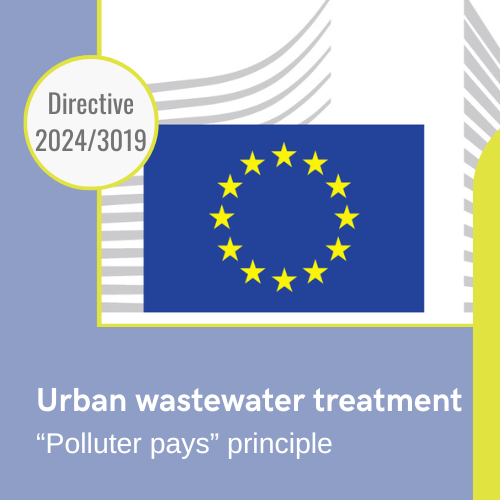New Urban Wastewater Treatment Directive

In November 2024, the European Parliament adopted the revised Urban Wastewater Treatment Directive, here, which introduces extended producer responsibility (EPR) obligations targeting pharmaceutical and cosmetic companies. These responsibilities focus on addressing micropollutants from their products that enter urban wastewater systems.
The Urban Wastewater Treatment Directive, established in 1991, aims to safeguard public health and the environment by mandating wastewater collection and treatment in urban areas. A 2019 evaluation by the European Commission identified emerging pollution sources, including micropollutants from pharmaceuticals, cosmetics, and microplastics, which the revised Directive seeks to mitigate.
One key provision is the requirement for manufacturers of these products to finance at least 80% of the costs of advanced wastewater treatment processes, specifically quaternary treatment, which targets the removal of micropollutants that traditional methods cannot effectively address. This requirement is part of the Extended Producer Responsibility (EPR) framework.
Key Points:
1. Focus on Micropollutants
Pharmaceuticals and cosmetics are major contributors to micropollutants found in urban wastewater. Quaternary treatment, also known as the "4th stage" of wastewater treatment, is essential for eliminating these pollutants.
2. Cost Sharing via EPR
Producers (including manufacturers, importers, or distributors of pharmaceuticals and cosmetics) are mandated to cover 80% of the associated costs, including investment, operational expenses, monitoring, and compliance measures. The cost allocation is determined based on the volume and toxicity of the substances placed on the market.
3. National Implementation and Discretion
EU member states have discretion in transposing the Directive into national laws and balancing its implementation to minimize impacts on product accessibility.
Products are exempt from EPR obligations where the relevant product(s) placed on the market are either (i) less than one tonne annually, or (ii) highly biodegradable in wastewater systems or do not produce micropollutants at the end of their lifecycle.
4. Economic Impact
The estimated costs of implementing quaternary treatment vary widely, with some estimates suggesting expenses could reach billions of euros annually across the EU. This has prompted calls for proportional and inclusive approaches to pollution mitigation, involving all sectors contributing to micropollutants.
While the Directive aims to advance the EU's environmental objectives, there are concerns that focusing cost responsibilities on only two sectors—pharmaceuticals and cosmetics—disregards other contributors to micropollutants and could negatively affect product affordability and competitiveness.
The Directive represents a significant shift towards environmental accountability but also raises questions about equity and practical implementation. It is expected to be transposed into Irish legislation by 2027. Producers of pharmaceuticals and cosmetics in Ireland should therefore stay up to date on the transposition of the revised Directive in the Member States where their products are placed on the market.
December 2024
